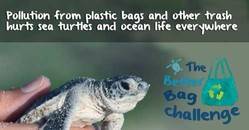by Nathan Jumper
Secretary General of the United Nations (UN) Ban Ki-moon recently made a statement on the importance of the world’s oceans to the post-2015 sustainable development goals. He remarked:
Given how critical oceans are to the health of our planet and the prosperity of people, they are an essential element in our emerging vision for sustainable development, including the new set of sustainable development goals now being prepared to guide the global fight against poverty for the next 15 years. Climate change poses a great challenge for the health and productivity of the oceans. The science is clear: humans have caused changes to the climate system that are linked to the warming of oceans. Sea-levels are rising, with devastating effects on vulnerable communities, especially people living in small island developing States. Oceans absorb a large portion of greenhouse gas emissions and are becoming more acidic as a result. Ocean ecosystems are degrading. Corals, which sustain so much of marine life, are vulnerable to bleaching and even death caused by warmer temperatures. World Oceans Day is a chance to strengthen our resolve to appreciate, protect and restore our oceans and their resources.This year, governments are seeking to adopt landmark agreements on climate change and ending poverty. Success will demand that they look at the essential role of world’s oceans.
 The ocean is one the most important resources we have on this earth. It regulates the climate, produces oxygen, and its array of wildlife feeds millions of people each year. Over three billion people depend on marine and coastal biodiversity for their livelihoods. Marine fisheries directly or indirectly employ over 200 million people, and the global market value of marine and coastal resources and industries is estimated at $3 trillion per year, or about 5 per cent of the global Gross Domestic Product.
The ocean is one the most important resources we have on this earth. It regulates the climate, produces oxygen, and its array of wildlife feeds millions of people each year. Over three billion people depend on marine and coastal biodiversity for their livelihoods. Marine fisheries directly or indirectly employ over 200 million people, and the global market value of marine and coastal resources and industries is estimated at $3 trillion per year, or about 5 per cent of the global Gross Domestic Product.
Unfortunately, pollution, illegal and unregulated fishing, and unsustainable aquaculture practices are taking a significant toll on this natural resource. As much as 40 per cent of the world oceans are heavily affected by human activities, including pollution, depleted fisheries, and loss of coastal habitats. Subsidies for fishing contribute to the rapid depletion of many fish species, which results in fisheries generating approximately $50 billion less per year than they might otherwise.
World Oceans Day at the United Nations (UN) seeks to informs the public on the impact of human actions toward the ocean in order to mobilize the world’s population toward a project for the sustainable management of the world’s oceans. The concept of a ‘World Oceans Day’ was first proposed in 1992 at the Earth Summit in Rio de Janeiro as a way to celebrate our world’s shared ocean and our personal connection to the sea. The World Ocean Network has been instrumental in building ocean support for ocean awareness events since 2002.
Here is a list of resources for World Oceans Day.
Here is video on Nuclear Science and Ocean Acidification.
Here is a collection of official reports, resolutions, and conventions proposed by the UN.